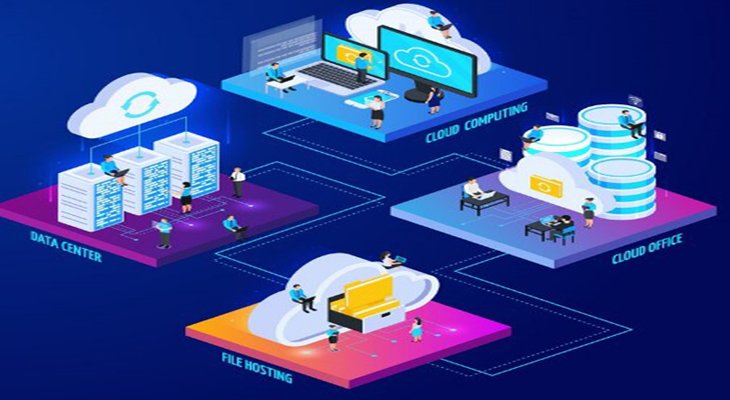
Navigating the Tax Implications of Amazon Web Services: What You Need to Know
Amazon Web Services (AWS) has transformed business operations with its scalable cloud solutions, but understanding the tax implications can be challenging.
This guide simplifies the tax aspects of AWS usage, covering how charges are taxed and ensuring compliance with global tax laws. It’s essential for both individual and business users to navigate these tax nuances to avoid pitfalls and enhance their tax strategy.
Key Takeaways
- AWS tax implications vary based on geographic location, service type, and usage patterns, affecting both individual users and businesses.
- Understanding AWS’s pricing model and tax documentation is essential for users to manage costs and comply with tax regulations effectively.
- Sellers on AWS Marketplace must be aware of sales tax, income tax obligations, and legal requirements such as data protection and intellectual property rights.
- AWS provides tools and support to help users navigate tax compliance, including detailed records for reporting and the Amazon 1099-K form for payment reporting.
- Staying informed about the latest developments in AWS taxation and marketplace requirements is vital for legal professionals advising clients in the digital ecosystem.
The Growth of Cloud Computing
The emergence of cloud computing, led by Amazon Web Services (AWS), has transformed how businesses and individuals access computing resources. AWS provides a comprehensive suite of services that support a variety of needs, including website hosting, database management, and AI algorithm execution.
This has leveled the playing field, especially for startups and small businesses, offering them access to the same advanced tools as bigger companies without the high expenses associated with physical infrastructure.
The table below highlights the key advantages of AWS in the cloud computing landscape:
| Advantage | Description |
|---|---|
| Scalability | Easily adjust resources to meet demand |
| Cost-Effectiveness | Pay only for what you use, reducing upfront costs |
| Reliability | High availability and robust disaster recovery options |
| Innovation | Access to the latest technologies without heavy investment |
As cloud computing continues to grow, AWS is likely to remain a pivotal player, shaping how businesses innovate and compete in the digital age.
Understanding Taxation on AWS
The Basics of Taxation
Navigating taxation is crucial for users of services like Amazon Web Services (AWS), given the significant variations in tax laws across jurisdictions.
Taxes aren’t uniform; each country has its own set of regulations affecting goods and services, including cloud computing. For AWS, taxes typically depend on the customer’s location and the services used.
For example, cloud services might incur a value-added tax (VAT) in some areas, whereas others might have different sales taxes. It’s vital for AWS users to comprehend their particular tax responsibilities stemming from their platform usage.
Here is a simplified list of tax considerations for AWS users:
- Location of the user: Determines the tax jurisdiction and applicable rates.
- Type of AWS service: Different services may be taxed differently.
- Purpose of use: Business or personal use can affect tax treatment.
- Payment method: Some jurisdictions offer tax advantages for certain payment methods.
Staying informed about these factors can help users navigate the complex landscape of AWS taxation and avoid unexpected tax liabilities.
How AWS Charges are Taxed?
Grasping the tax implications of AWS charges is essential for users to efficiently handle their finances. AWS charges can attract different taxes such as sales tax, VAT, or other local taxes, contingent on the user’s location and the services utilized.
These taxes are usually determined by the billing address the user provides and are added to AWS service costs. For example, in the U.S., AWS charges could be subject to state and local sales taxes, with the exact tax rate and its applicability depending on the state where the services are deemed consumed.
Here’s a simplified example of how AWS might calculate taxes for a user based in New York:
| Service Type | Cost Before Tax | NY State Sales Tax Rate | Total Cost After Tax |
|---|---|---|---|
| EC2 Instances | $100 | 8% | $108 |
| S3 Storage | $50 | 8% | $54 |
Users should examine their AWS billing statements for tax charges, as AWS offers detailed cost and tax breakdowns in billing reports. This helps in monitoring expenses and preparing for tax payments.
Since tax regulations may evolve, consulting a tax professional or referencing AWS tax resources for up-to-date information is recommended.
Factors Influencing AWS Taxation

Geographic Location
The tax impact of using Amazon Web Services (AWS) greatly depends on the user’s geographic location, as tax laws vary by country and region.
This variation can influence the total cost of AWS services, with some jurisdictions imposing extra taxes on digital services and others providing incentives for cloud computing use.
The location of AWS data centers hosting your services is also crucial, since local laws determine the tax obligations for services in those areas.
Here’s a brief overview of how geographic location can influence AWS taxation:
- United States: Sales tax may apply depending on the state.
- European Union: VAT is charged at the rate applicable in the member state.
- Asia: Tax rates and regulations vary widely across different countries.
- Australia: Goods and Services Tax (GST) applies to AWS services.
AWS users must understand the tax regulations in their regions to ensure compliance with local tax laws. While AWS offers resources to help users grasp their service’s tax implications, consulting with tax professionals may be necessary. Ultimately, the responsibility for tax compliance rests with the user.
Type of Service
The tax implications for AWS users vary by the service type, as different AWS offerings, like cloud storage, data processing, or content delivery networks, may have distinct tax treatments based on their classification by tax authorities.
Here’s a simplified overview of how different AWS services might be categorized for tax purposes:
- Compute Services: Virtual servers, container services, and serverless computing.
- Storage & Content Delivery: Object storage, block storage, file storage, and content delivery services.
- Database Services: Relational databases, NoSQL databases, data warehousing, and in-memory caching.
- Networking Services: Virtual private cloud, content delivery network, and DNS services.
AWS users need to grasp the tax regulations for each service type they use to plan and budget effectively for cloud service costs. Consulting a tax professional or using AWS tax documentation can offer insights on managing tax obligations efficiently.
Usage Pattern
Users’ interactions with AWS services, including usage frequency and timing, can notably impact the tax implications of their cloud infrastructure. Higher usage or computational demands can increase costs and, therefore, tax liabilities. Understanding how these patterns affect taxes is crucial for managing expenses.
Understanding and optimizing usage patterns is crucial for managing tax costs effectively. Here are some key considerations:
- Scheduling: Utilizing services like Amazon EC2 with scheduled start and stop times can reduce running costs.
- Demand Analysis: Analyzing historical usage data helps in predicting and managing peak demand times, potentially lowering costs.
- Event-Driven Services: Services like AWS Lambda, which are event-driven and scale with use, can offer cost savings as they are billed based on the number of requests and execution duration.
By being mindful of these factors and adjusting usage accordingly, AWS users can potentially mitigate some of the tax impacts associated with their cloud service consumption.
Tax Implications for AWS Users

For Individual Users
Individual AWS users must understand the tax implications of their cloud service usage, which varies by service type and location. While AWS oversees infrastructure, users are responsible for ensuring tax compliance, especially when services are used for income generation, necessitating income and expense reporting on tax returns.
Key considerations include maintaining detailed AWS expense records for deductions, exploring tax benefits for educational or research purposes, and investigating potential tax credits for renewable energy use or participation in specific AWS programs. Consulting tax professionals is vital for compliance and maximizing tax advantages.
For Businesses
Businesses utilizing Amazon Web Services (AWS) must grasp the varied tax implications, such as the potential to deduct AWS costs as business expenses, addressing taxes across jurisdictions, and understanding VAT or GST for international operations.
Staying updated on tax laws, consulting professionals, or using tax software, along with leveraging AWS resources for guidance, are key steps to ensure compliance and optimize tax liability.
Navigating Tax Compliance with AWS
AWS Tax Documentation and Support
Amazon Web Services (AWS) offers extensive documentation and support to assist users with tax compliance challenges. This includes in-depth guides on tax policies, billing practices, and accessing tax invoices and reports.
Users can receive advice on comprehending the tax impacts of their AWS activities and managing their accounts with taxation in mind.
For additional support, AWS offers various channels:
- Contact Us: For direct inquiries and assistance.
- AWS Support: Access to a range of support plans, including a dedicated team for billing and account issues.
- AWS re:Post: A community-driven platform for questions and answers.
- Knowledge Center: A repository of articles and FAQs on common issues and best practices.
It is crucial for users to stay informed about the latest tax regulations and AWS policies. Regularly reviewing AWS’s tax-related documentation and utilizing the available support resources can significantly ease the process of tax compliance.
Best Practices for Managing AWS Costs
Effectively managing AWS costs involves regularly reviewing your bill to identify unexpected charges and understand usage patterns.
To optimize your cloud budget, utilize AWS Budgets for setting cost and usage targets, apply cost allocation tags for tracking, use the AWS pricing calculator for cost estimates, and opt for reserved instances or savings plans for discounts on long-term workloads.
Continuous monitoring with tools like AWS Cost Explorer is crucial for making informed decisions on resource scaling, helping you manage cost fluctuations and stay competitive.
International Perspectives on AWS Taxation

Europe
Taxation for Amazon Web Services (AWS) in Europe is shaped by individual country regulations and EU policies, resulting in varied VAT rates and digital service taxes across the continent. EU member states set their VAT rates within an EU framework, creating a diverse tax landscape.
Moreover, some European countries have introduced or are contemplating digital service taxes aimed at large digital firms, including AWS, to ensure these companies contribute fairly to local economies.
Here is a brief overview of the VAT rates in some key European countries:
| Country | Standard VAT Rate |
|---|---|
| Germany | 19% |
| France | 20% |
| Italy | 22% |
| Spain | 21% |
AWS users in Europe must also be aware of the EU-U.S. Privacy Shield and Swiss-U.S. Privacy Shield frameworks, which govern the transfer of data outside the EU and Switzerland. Compliance with these frameworks is crucial for maintaining data protection standards and avoiding legal complications.
Asia
Taxation on AWS services in Asia varies widely due to the diverse tax laws across the region. Each country has its approach to digital service taxation, affecting AWS costs. For example, Japan applies a consumption tax, and South Korea charges VAT on AWS services.
Emerging markets may have unique tax structures impacting AWS billing. Understanding local tax implications is crucial for AWS users in Asia to manage costs effectively.
Here’s a brief overview of the tax rates for AWS in select Asian countries:
| Country | Tax Type | Rate |
|---|---|---|
| Japan | Consumption Tax | 10% |
| South Korea | VAT | 10% |
| India | GST | 18% |
| Singapore | GST | 7% |
AWS users in Asia should consult with tax professionals or utilize AWS’s tax documentation and support to ensure compliance and optimize their tax positions.
North America
In North America, AWS tax implications vary by country, each with distinct tax laws and compliance needs. The U.S. features a layered tax system of federal, state, and local taxes affecting AWS bills based on user and data center locations.
Canada taxes AWS with GST or HST, offering input tax credits for businesses on these services. Mexico applies VAT to digital services, including AWS.
To illustrate the differences in tax rates across North America, consider the following table:
| Country | Federal Tax Rate | State/Provincial Tax Rate | Local Tax Rate |
|---|---|---|---|
| USA | Varies | Varies | Varies |
| Canada | 5% GST | 0-15% HST | N/A |
| Mexico | 16% VAT | N/A | N/A |
It’s important for AWS users in North America to stay informed about the tax laws in their specific jurisdiction and to consult with tax professionals to ensure compliance and optimize tax strategies.
Conclusion
Managing AWS tax implications involves understanding factors like location, service type, and usage patterns.
It’s essential for users and businesses to stay informed and comply with tax laws to make the most of AWS while avoiding legal issues. Utilizing AWS’s tax resources, managing costs effectively, and staying updated on global tax changes are key to handling tax obligations.
A proactive stance on tax planning ensures users can innovate and grow within the AWS ecosystem without facing unexpected tax issues.
Frequently Asked Questions
What are the basics of AWS taxation?
AWS taxation typically involves understanding the applicable taxes for cloud services, which can include sales tax, value-added tax (VAT), or other regional taxes depending on the user’s location and the type of service provided. AWS charges may also be subject to income tax obligations for businesses.
How does geographic location influence AWS taxation?
Geographic location determines the specific tax laws and regulations that apply to AWS services. Different countries and regions have varying tax rates and rules for digital services, which can affect the overall cost of using AWS.
Are individual users and businesses taxed differently for using AWS?
Yes, individual users may have different tax obligations compared to businesses when using AWS. For instance, businesses might be able to claim tax deductions on AWS expenses as operational costs, whereas individual users are typically subject to standard tax regulations for digital service purchases.
What is AWS Marketplace and what are the tax implications of selling on it?
AWS Marketplace is a digital catalog where users can sell or buy software that runs on AWS. Selling on AWS Marketplace may have tax implications, such as sales tax and income tax obligations, and it’s essential to understand and comply with tax laws in the jurisdictions where you sell your product.
What are the best practices for managing AWS costs to ensure tax compliance?
Best practices for managing AWS costs include keeping detailed records of all financial transactions, monitoring fees and expenses, and considering the use of accounting software or professional accounting services. It’s also important to stay informed about AWS tax documentation and support resources to ensure compliance.
How does AWS support users in navigating tax compliance?
AWS provides tax documentation and support to help users understand their tax obligations. This includes resources like the AWS Tax Help section, which offers guidance on how AWS charges are taxed in different regions, and the provision of tax invoices or reports for users to use in their tax filings.

Muhammad Moiz, a Dartmouth College Computer Science major, is an experienced and respected figure in the fields of digital marketing and programming. Moiz excels in demystifying complex technical topics, making him a valuable resource for both seasoned professionals and those new to the tech world.

